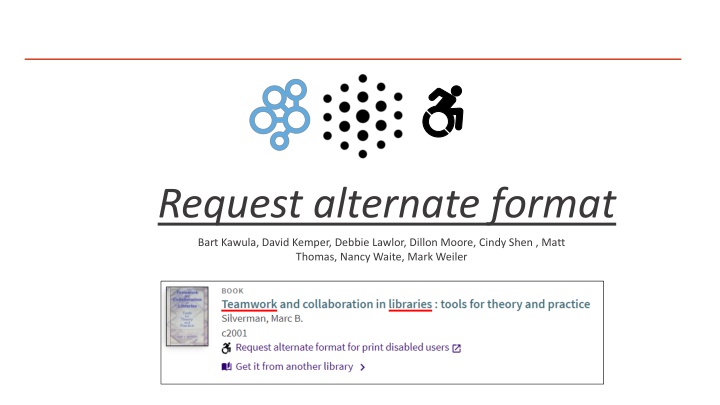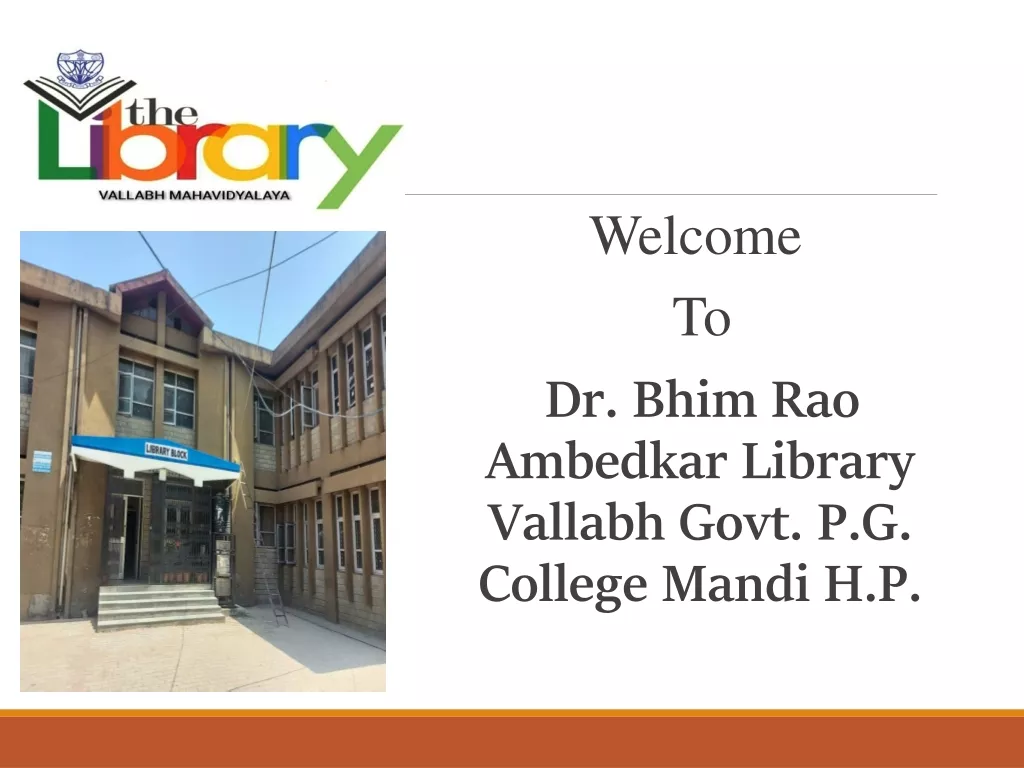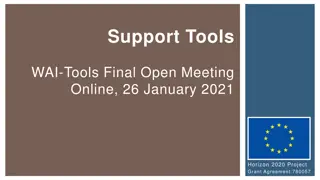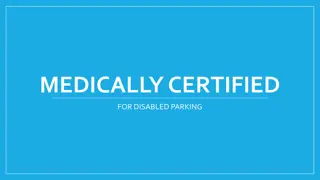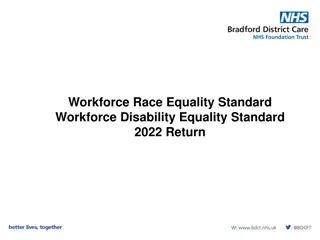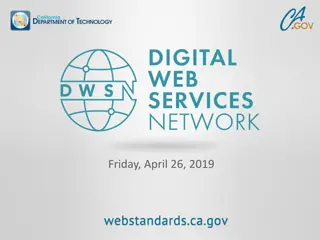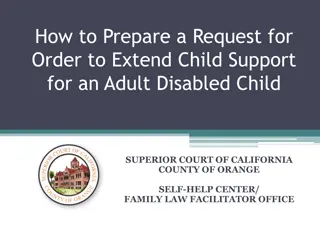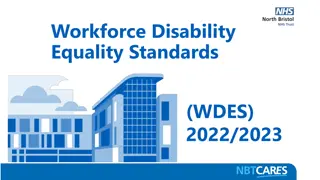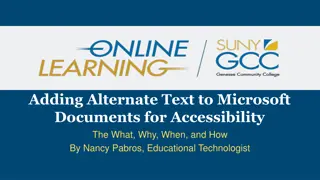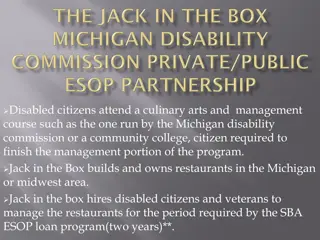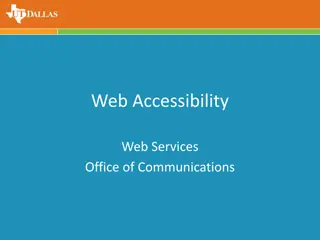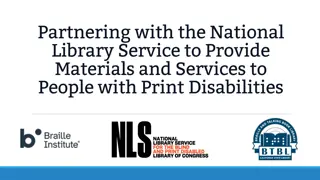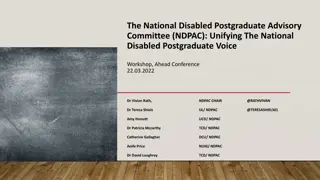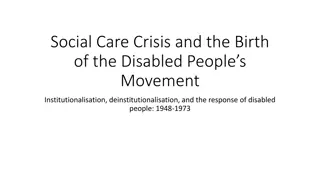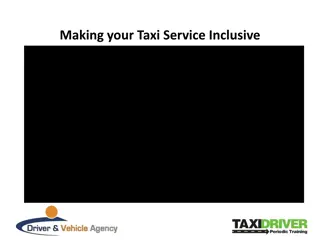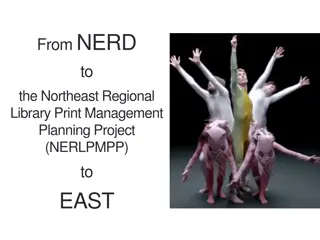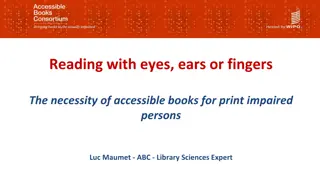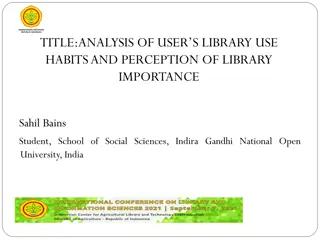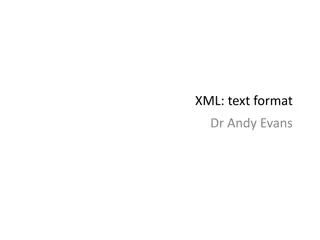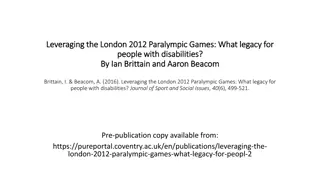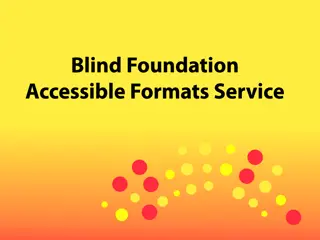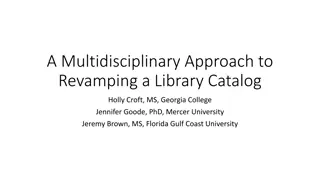Enhancing Library Accessibility: Request Alternate Formats for Print Disabled Users
This project focuses on providing accessible library services for print-disabled users by allowing them to request alternate formats, reducing their workload and promoting awareness of available services. The workflow involves users accessing the library website, logging in with ACE tokens, populating forms with bibliographic information, and emailing local staff for remediation. Metrics are recorded to understand user experiences and barriers, with resources designed to cater to the majority. Collaboration between McMaster and Laurier universities drives this initiative, stemming from the need for inclusive user experiences. Testimonials from visually impaired students at McMaster highlight the impact of the Request Alternate Format service.
Download Presentation

Please find below an Image/Link to download the presentation.
The content on the website is provided AS IS for your information and personal use only. It may not be sold, licensed, or shared on other websites without obtaining consent from the author.If you encounter any issues during the download, it is possible that the publisher has removed the file from their server.
You are allowed to download the files provided on this website for personal or commercial use, subject to the condition that they are used lawfully. All files are the property of their respective owners.
The content on the website is provided AS IS for your information and personal use only. It may not be sold, licensed, or shared on other websites without obtaining consent from the author.
E N D
Presentation Transcript
Request alternate format Bart Kawula, David Kemper, Debbie Lawlor, Dillon Moore, Cindy Shen , Matt Thomas, Nancy Waite, Mark Weiler
What is the Request Alternate Format for Print Disabled Users Link? Allows library users to request alternate formats from the library catalogue Reduces work by library users, and staff Advertises service for those who are not aware
User & staff workflow - Step 1 User clicks on Request alternate format for print disabled users link
User & staff workflow Step 2 On local website, user logins with ACE token
User & staff workflow Step 3 Form populated with bibliographic info Email local library Find copy Remediate
@ User & staff workflow Step 4: email local staff Example of info in Laurier s email to local remediation team User contact info Item information Resource Type (book, book chapter, journal article, etc.) Format requested Link to Omni What format is wanted? Other instructions
What does it do and aspire to do? Provides evidence-based metrics Records frequency and barriers experienced by library users with print disabilities Resources are designed for the majority
Where did it come from? Inaccessible user experiences lead to collaboration McMaster and Laurier partners on this project
McMaster: Student-centred perspective 1st year visually impaired undergraduate student in Engineering Never had the opportunity to read books that were not required reading Ecstatic to know that he could request library material McMaster created Request Alternate Format link in 2014 in Sierra We have had 58 requests with the new form Intellectual Freedom
Laurier: Student-centred perspective 59 uses in 2024 (7 articles, 51 books, 1 book chapter). Different local context: Don't do course materials; staff member and Accessibility Coordinator Background: Supported masters psychology (Ashley Shaw, with permission) doing a scoping review Required 130 journal articles locally remediated and 80+ through vendor-based remediation For this user: 14.5% of material available through CRKN and 1% from OCUL was born accessible Cross a threshold: Can t unsee the problems!
Moving Towards Get Alternate Format
Library Web Accessibility Advisor Laurier secured funds for a Library Web Accessibility Advisor, hired Ashley She drew attention to issues beyond Web Content Accessibility Guidelines (WCAG) Libraries can unintentionally send hurtful messages when students with print-disabilities are expected to use different means to get library material from their peers while discovery layers evolve
Responding We co-conceptualized PDF Pitstop with 3 features: 1. Integration: Get accessible copy workflow integrated into discovery layer 2. Verification: Quality assurance 3. Communication: Raises awareness of issues within library ecosystem Team: Ashley Shaw (Laurier), Mark Weiler (Laurier), Bart Kawula (Scholars Portal), Matt Thomas (Laurier), Aneta Kwak (New College)
Partnership opportunity At 2021 OCUL Accessibility Community s presentation Nancy Waite and Paige Maylott showed McMasters Request Accessible Copy Summer 2022, McMaster launched Omni, loses link Loss registered in the Collaborative Futures accessibility monitoring table Opportunity to collaborate created Link Integration Team McMaster: Debbie Lawlor, David Kemper, Nancy Waite Laurier: Cindy Shen, Dillon Moore, Matt Thomas, Mark Weiler Scholars Portal: Bart Kawula
Integration with Scholars Portal ACE token validation API McMaster and Laurier are using it with their Drupal request forms. The Internet Archive is using to grant access to their accessibility collection. Request logging API Saving anonymized request form data and ALMA PNX records.
Future collaborations OCUL universities are invited to joining the initiative Implement Omni link and integration with Scholars Portal How can it add features to support the library ecosystem? Furnish acquisitions and collections librarians with evidence-based metrics Identify OCUL strengths for knowledge sharing (e.g., experts handling conversions) Identify where support is needed (e.g., local staff remediators) Notify subject librarians of remediation to build awareness and action Recognize potential Align with federal Equitable Access to Reading Program (EARP) ($1000 per alternate format item)?
Thank you to. University of Manitoba Library: Accessibility committee and Technical team for sharing code Local development: Debbie Lawlor (McMaster) Cindy Shen (Laurier) Local remediation: McMaster: Nancy Waite, Zuhaa Ali, Celine Chang, Grace Dobbie, Katherine Barnard, Ayma Iqbal, Manarpan Kaur, Madison Lawson, Megan Lee, Sneha Patel, Shruthi Viswanathan, and Jane Nguyen Laurier: Dawn Westwater, Joanne Oud, Matt Rohweder Everyone across OCUL and beyond who is continuing and joining efforts to advance accessible reading experiences Students, faculty, staff with print disabilities who have spoken up or persisted
Contact Information Bart Kawula, b.kawula@utoronto.ca Mark Weiler, mweiler@wlu.ca Nancy Waite, waitenm@mcmaster.ca
